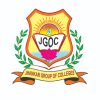B.Ed (Bachelor of Education) Course Features & Details
It generally takes two years to complete the B.Ed program, although some institutions may offer a one-year program for students with an undergraduate degree already. The curriculum usually combines theory and practice. Among the core subjects are educational psychology, teaching methodologies, curriculum development, and educational technology. Primary education, secondary education, and special education are specialized subjects based on the level and subject of teaching.
Scope of B.ED
Different job profile for a B.Ed. graduate is as follows:-
- School Teacher
- Administrator
- Private tutor
- Education Researcher
- Home Tutor
- Librarian
- Education Consultant
- Content Writer
- Online Tutor
- Instructor
- Vice Principle
About B.Ed (Bachelor of Education)
- Duration of course: 2 years
- Eligibility: Graduation with 50% marks in any discipline.
- Mode of Exams: Annual
- Approval: National council of Teacher Education
- Affiliation: Gurugram Govt. University (Gurugram)
- Scope: PGT(Post Graduated Trained Teacher),TGT (Trained Graduated Teacher).

SCHEME OF EXAMINATION FOR B. ED. TWO YEAR PROGRAME
YEAR I
Course | Nomenclature | Max. Marks | No. of Credits | Teaching Hours per Week (Exam Hours: Marks) | ||
Total | Theory |
Internal Assessment | ||||
I | Childhood and Growing up | 100 | 80 | 20 | 4 Credits | 4 (3 HRS: 80) |
II | Contemporary India and Education | 100 | 80 | 20 | 4 Credits | 4 (3 HRS: 80) |
III | Learning and Teaching | 100 | 80 | 20 | 4 Credits | 4 (3 HRS: 80) |
IV & V | Pedagogy of School Subject 1* | 100 | 80 | 20 | 4 Credits | 4 (3 HRS: 80) |
IV & V | Pedagogy of School Subject II* | 100 | 80 | 20 | 4 Credits | 4 (3 HRS: 80) |
Enhancing Professional Capacities (EPC) Practicum | ||||||
VI (A) | Reading and Reflecting on Texts | 50 |
|
| 2 Credits |
|
VI (B) | Drama and Art in Education | 50 |
|
| 2 Credits |
|
VII (A) | Critical Understanding of ICT | 50 |
|
| 2 Credits |
|
VII (B) | Understanding the Self | 50 |
|
| 2 Credits |
|
| Total Marks | 700 |
| Total Credits | 28 Credits |
|
NOTE: Engagement with the Field in the School for two weeks: Tasks and Assignments for all the theory papers**
YEAR II
Course | Nomenclature | Max. Marks | No. of Credits | Teaching Hours per Week (Exam Hours: | ||
Total | Theory | Internal | ||||
I | Knowledge and Curriculum | 100 | 80 | 20 | 4 Credits | 4 (3.00 HRS: 80) |
II | Assessment for Learning | 100 | 80 | 20 | 4 Credits | 4 (3.00 HRS: 80) |
III | Creating an Inclusive School | 100 | 80 | 20 | 4 Credits | 4 (3.00 HRS: 80) |
IV (A) | Language Across the Curriculum | 50 | 40 | 10 | 2 Credits | 2 (1.30HRS: 40) |
IV (B) | Understanding Disciplines and Subjects | 50 | 40 | 10 | 2 Credits | 2 (1.30 HRS: 40) |
V (A) | Gender, School & Society | 50 | 40 | 10 | 2 Credits | 2 (1.30 HRS: 40) |
V (B) | Option Course Any one of the following: 1. Work Education 2. Health, Physical and Yoga Education 3. Peace Education 4. Guidance and Counselling | 50 | 40 | 10 | 2 Credits | 2 (1.30 HRS: 40) |
VI | Skill in Teaching (Pedagogic Subject 1)* | 100 |
|
| 4 Credits |
|
VII | Skill in Teaching (Pedagogic Subject II)* | 100 |
|
| 4 Credits |
|
VIII | School Based Activities **: 1. Development of CCE 2. Development of Learning Material 3. Reporting (Record) about School Internship | 50 |
|
| 2 Credits |
|
| Total Marks | 750 |
| Total Credits | 30 Credits |
|
NOTE: Engagement with the Field in Schools for two weeks: Tasks and Assignments for all the theory papers along with Teaching Practice for Pedagogy of School Subject I & II**
- Candidates are required to opt two ‘Teaching Subjects’ selecting one from any (A, B, C & D) groups out of which one teaching subject can be on the basis of graduation and the other one may be on the basis of Post graduation. However, the candidates who have passed Shastri Examination can opt for two subjects from Group-A.
Paper | NOMENCLATURE | Max. Marks | No. of Credits | Teaching Hours per Week (Exam Hours: Marks) | ||
Theory | Internal Assessment | |||||
Group A | ||||||
Opt. i | Pedagogy of Hindi | 80 | 20 | 4 Credits | 4 (3 HRS: 80) | |
Opt. ii | Pedagogy of English | 80 | 20 | 4 Credits | 4 (3 HRS: 80) | |
Opt. iii | Pedagogy of Sanskrit | 80 | 20 | 4 Credits | 4 (3 HRS: 80) | |
Opt. iv | Pedagogy of Urdu | 80 | 20 | 4 Credits | 4 (3 HRS: 80) | |
Group B | ||||||
Opt. i | Pedagogy of Mathematics | 80 | 20 | 4 Credits | 4 (3 HRS: 80) | |
Opt. ii | Pedagogy of Home Science | 80 | 20 | 4 Credits | 4 (3 HRS: 80) | |
Group C | ||||||
Opt. i | Pedagogy of Biological Science | 80 | 20 | 4 Credits | 4 (3 HRS: 80) | |
Opt. ii | Pedagogy of Economics | 80 | 20 | 4 Credits | 4 (3 HRS: 80) | |
Opt. iii | Pedagogy of Computer Science | 80 | 20 | 4 Credits | 4 (3 HRS: 80) | |
Opt. iv | Pedagogy of Music | 80 | 20 | 4 Credits | 4 (3 HRS: 80) | |
Opt. v | Pedagogy of Fine Arts | 80 | 20 | 4 Credits | 4 (3 HRS: 80) | |
Group D | ||||||
Opt. i | Pedagogy of Physical Science | 80 | 20 | 4 Credits | 4 (3 HRS: 80) | |
Opt. ii | Pedagogy of Social Sciences | 80 | 20 | 4 Credits | 4 (3 HRS: 80) | |
Opt. iii | Pedagogy of Commerce | 80 | 20 | 4 Credits | 4 (3 HRS: 80) | |
**Under the broad curricular area, Engagement with the Field, 20 weeks (4+16) shall be allocated over the two years for Tasks, assignments, Teaching Practice and school internship.
Distribution of Four Weeks
- During the first year, to support better understanding of schools and in preparation of Internship, teacher education institutes shall make provisions for visits to innovative centres of pedagogy and learning – innovative schools, educational resource centres,
- Two weeks of First Year will be devoted to field engagement through different tasks and projects with the community, the school, and the child in school and out-of-school.
- Two weeks of Second Year will be devoted to field engagement through different tasks and projects with the community, the school, and the child in school and out-of-school along with the teaching practice for Pedagogy of School Subject I & II.
Distribution of Sixteen Weeks (School Internship)
- During the Internship, a student-teacher shall work as a regular teacher and participate in all the school activities, including planning, teaching and assessment, interacting with school teachers, community members and children.
- Initially, the student-teachers will observe the school and its classrooms with regular teachers
for one week.
- For each student-teacher, internship should be conducted preferably in one school within the District of concerned College of Education for the entire another 15 weeks. However, this period can be divided into two blocks in such a way that teaching in one school at a particular level (for example elementary or senior secondary) during one block, is followed by the teaching in another school or the same school at another level during the second block. Under any circumstances, the student-teacher should not be sent to more than two schools during her/his internship period.
- Student-teachers should be provided opportunities to teach in government and private schools with systematic supervisory support and feedback from Principal/faculty of the school and concerned College of Education giving preference to practice schools and limiting to concerned District only. After completing School Internship from the school, the Principal of the concerned College of Education will countersign the Certificate signed by Teacher Educator of concerned College and Principal of the
NOTE: Internship should not be reduced to the ‘delivery’ of a certain number of lesson plans, but should aim for meaningful and holistic engagement with learners and the school. Moreover, teaching should not be practiced through the reductionist approach of ‘microteaching’ of isolated ‘skills’ and simulated lessons.
Note:
- Each student will attend supervised teaching for two weeks in 2nd
- Practical Exam for Course VI (A), VI (B), VII (A) & VII (B) will be conducted by the external examiners at the end of 1st
- Examination of Skill in Teaching and School Based Activities will be conducted by an
External Team consisting of one Coordinator (Head Examiner should be of the parent University) and two Members (Sub-Examiners duly approved by the Board of Studies) at the end of 4th Semester. While constituting the team, teaching subject of the Coordinator will be taken into consideration and it will not overlap with the Teaching subjects of other two examiners. Thus, a team will cover all the three streams i.e. Teaching of Languages, Teaching of Sciences and Teaching of Social Sciences.
Criteria for the award of 20 % Internal Assessment in Theory Papers will be as per the distribution given below:-
i) | One Task & Assignment in every theory paper | 10% marks |
ii) | One test in every theory paper | 5%marks |
iii) | Attendance | 5%marks |
| Upto 75% | 0 mark |
| Upto 80% | 2%marks |
| Upto 85% | 3%marks |
| Upto 90% | 4%marks |
| Above 90% | 5%marks |
NOTE
If a candidate is awarded Internal Assessment of more than 75%, the concerned teacher will give specific justification for the same which shall be considered by a committee to be constituted by the concerned Principal of the College as the case may be.
Grand Total = 1450 Marks Total Credits = 58
